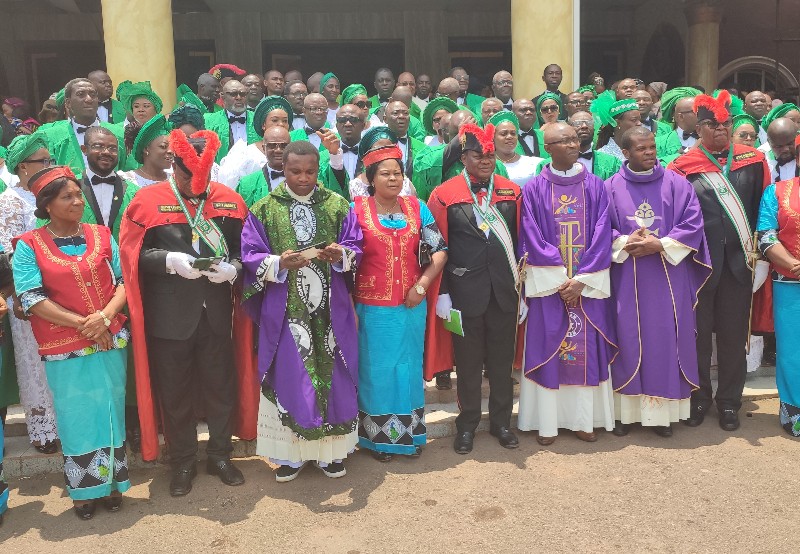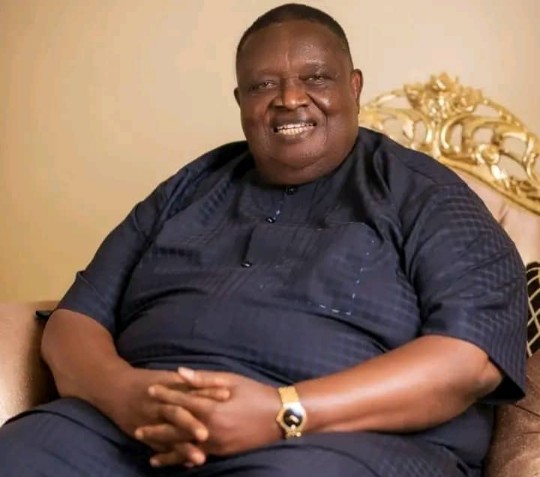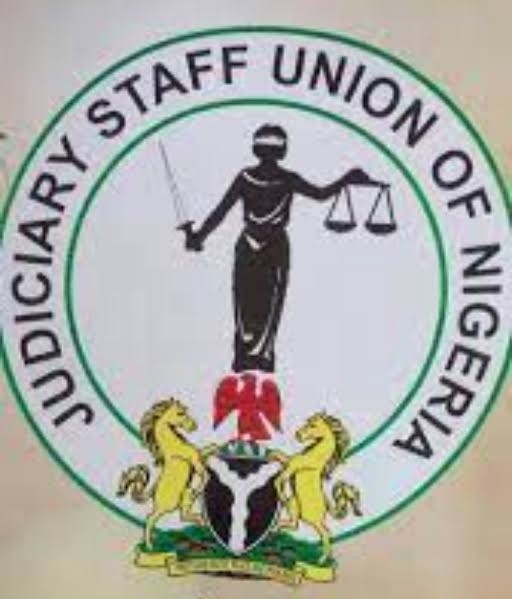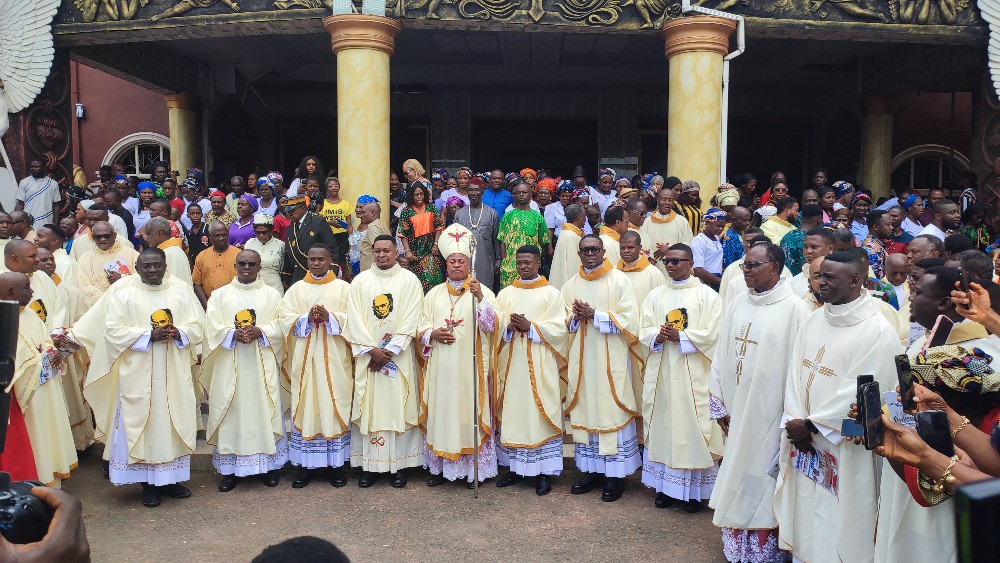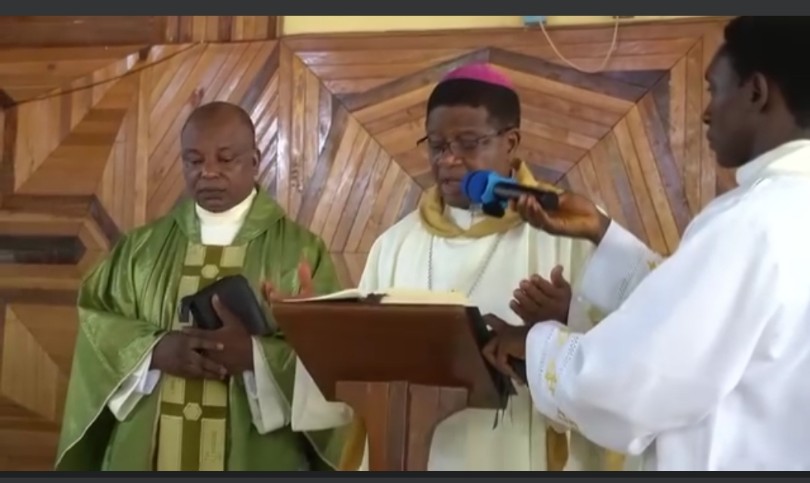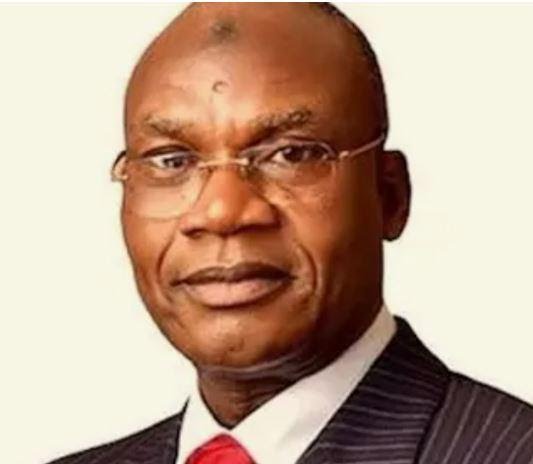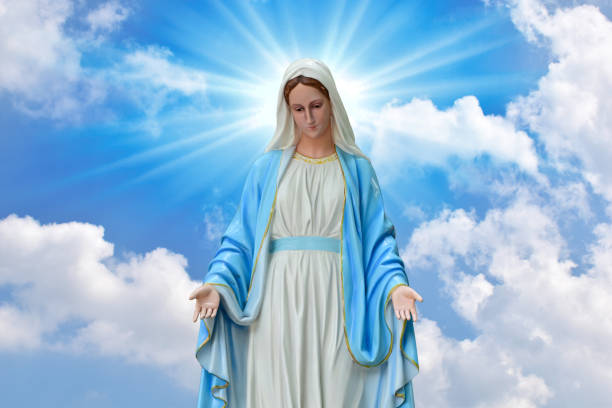
First degree Knights of St. Mulumba admitted at Joseph's Cathedral, Ekwulobia
Sunday Mar 17, 2024 22:47 pm
By NEWS EDITOR
Ekwulobia,
News
New first degree Knights of Order of St. Mulumba have been admitted at Joseph's Cathedral, Ekwulobia on Sunday.
During the ceremony, the Cathedral Chancellor implored the Knights to always abide by the oath of allegiance. He prayed God to grant all Knights the grace to fulfill the obligations as required by the Church.
The Order of Knights of Saint Mulumba was founded in Onitsha, Anambra, Nigeria on 14 June 1953.
Kalemba, Matthias Mulumba
Kalemba was a member of the Soga tribe, born in Bunya County in eastern Uganda. Together with his mother, he was captured by Ganda raiders belonging to the Otter clan. His captors sold him as a slave to Magatto, uncle of the Chancellor Mukasa, and a member of the Edible-Rat Clan. Kalemba grew up in this family, treated as a member of the clan and as a free man. After the death of his adoptive father, he remained for a time with Magatto’s brother, Buzibwa. On attaining manhood, he took service with Ddumba, the chief of Ssingo County, becoming effectively the head of his household and supervisor of all the other servants. On Ddumba’s death, his brother gave official recognition to Kalemba’s position, by creating an office for him in memory of Ddumba. Henceforth, Kalemba was known as The Mulumba.
Kalemba was a man of fairly large stature and light colouring. He sported a small beard, unusual for a Ganda. He was immensely strong, of a joyful disposition and a passionate searcher after truth. This passion led him first to Islam, and then - after the arrival of the Anglican missionaries - to their Christian instructions. It was the duty of the chief of Ssingo to carry out construction at the royal palace. When King Mutesa I decided to build houses for the Catholic missionaries, Kalemba was assigned to the task. Coming into contact with Catholics for the first time, he discovered that Protestant prejudices about them were not true. On May 31, 1880 he enrolled as a Catholic catechumen, but continued occasionally to attend Anglican Bible classes.
Kalemba took his Christian allegiance seriously. Although he was the owner of a large number of women, he made other provisions for all except one, called Kikuvwa, whom he kept as wife. He was baptized by Father Ludovic Girault on May 28, 1882. Kalemba schooled himself in humility by undertaking menial tasks, working in his garden, carrying loads and even accepting unmerited blows from the king’s soldiers. He declared proudly that he was a slave - “the slave of Jesus Christ.” He is said to have driven off a wild buffalo with the aid of a stick. He took part in the war-raids organized by his chief, but refused to take share in the looting which was their main object. He also refused to take bribes when administering justice on behalf of his master.
At his home in Mityana, forty-seven miles from the capital, Kalemba lived a humble life, taking up the trades of pottery and tanning. During the absence from Uganda of the Catholic missionaries from 1882 to 1885, Kalemba organized a Christian community at Mityana where, together with the future martyrs Noe Mawaggali and Luke Banabakintu, he gave Christian instruction. When persecution broke out in 1886 this community of Christians and catechumens numbered about two hundred.
When the storm broke, Kalemba was at the capital rebuilding the king’s palace that had burned down in February 1886. Although in imminent danger, he did not leave his post. Kalemba’s master, the chief of Ssingo, deemed it best to arrest him and his companion, Luke Banabakintu, himself. They spent the night of May 26 at the chief’s town residence, with their feet in the stocks and their necks in slave yokes. The following day they were taken to the palace, where the chancellor sentenced them to a savage death for acknowledging that they were Christians. On the way to Namugongo, the traditional place of execution, Kalemba stopped and asked to be put to death there and then in Old Kampala. His executioners butchered him on the spot, cutting off his limbs and tearing strips of flesh from his body, burning them before his eyes. His courage and endurance were extraordinary and the only sound that came from his lips were the words: “My God ! My God !” The executioners then tied up his arteries and left him to die a lingering death.
Matthias Kalemba’s passion began at noon on Thursday, May 27. On Saturday it had not ended. Some men coming to cut reeds in the swamp heard a voice calling: “Water! Water!” They were so horrified by the sight that they fled. He died presumably on Sunday, May 30. God alone knows the full extent of his agony. Luke died with Charles Lwanga and his companions at Namugongo on May 27. Matthias Kalemba, the Mulumba, was declared “Blessed” by Pope Benedict XV in 1920, together with twenty-one other martyrs. They were proclaimed canonized saints in 1964 by Pope Paul VI.
Credit | Dictionary of African Christian Biography
Stories from the same author

Sports
John Cena announces his retirement from WWE after 22 years.
John Cena to step away from wrestling next year after a retirement tour
All Headlines
Categories
Return
Recent Stories

News
Unizik new Acting VC, Prof Carol Arinze-Umobi assumes duty, promises open-door administration.
Prof Ikechebelu reverts to office as DVC Admin

Society News
Chukwuemeka Odumegwu Ojukwu University staff, friends bid farewell to late legal icon, Sir Ignatius Obijiaku .

Education
Governing Council Federal Polytechnic, Nekede on courtesy visit to Imo State Governor, Hope Uzodinma.
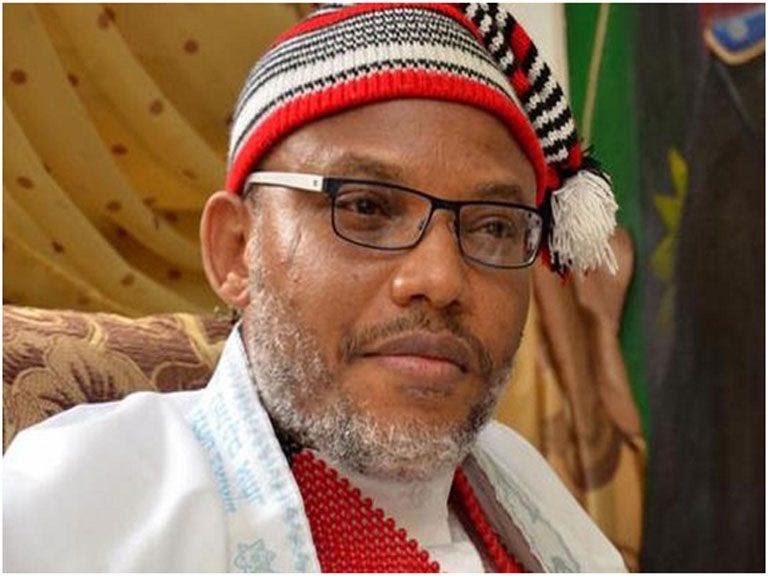
Cover Story
Labour Party caucus of southeast lawmakers asks President Tinubu to release Nnamdi Kanu.
Goup calls on Southeast governors to grant financial autonomy to state Houses of Assembly

Sports
John Cena announces his retirement from WWE after 22 years.
John Cena to step away from wrestling next year after a retirement tour

News
Tony Oneweek set to perform in the UK from July 13.
Gyration master to thrill fans in Bournemouth, Glasgow, Basildon, Manchester, others
Most Read Stories

Sports
Wrestlemania XL: End of era as Cody Rhodes defeats Roman Reigns, finishes the story.
Roman Reigns was Undisputed WWE Universal Champion for 1316 days
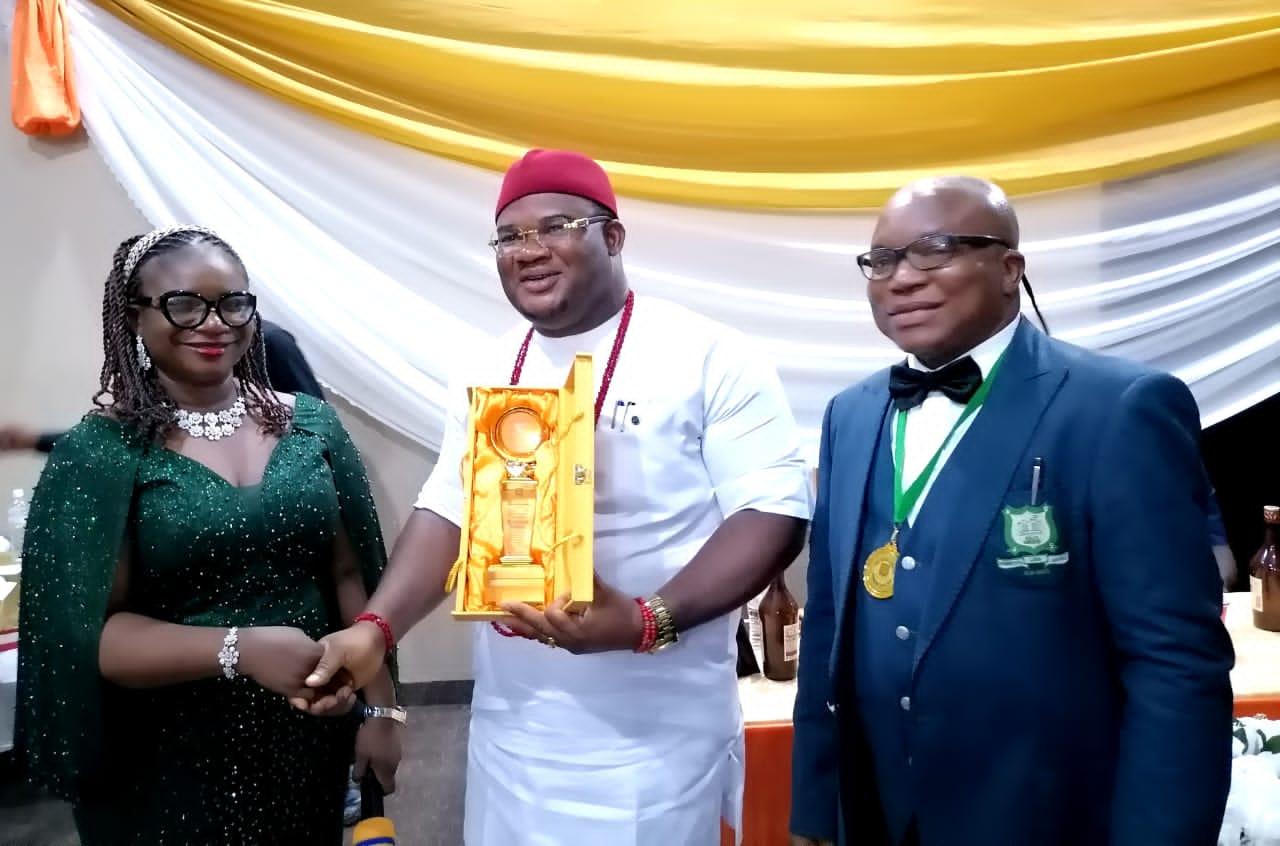
News
Dennis Junior Seminary Mbieri Old Boys hold AGM, give award to Nwabueze, others .
Pharm Chris Ukachukwu delivers lecture
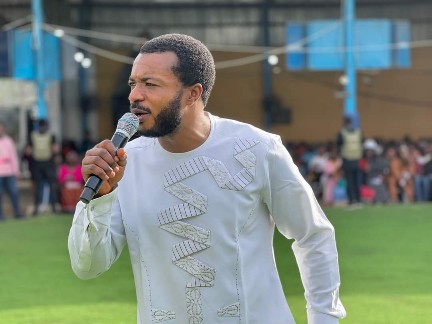
Cover Stories
Worship, eat and live: 100 caterers cook 10,000 bags of rice, 5,000 cows for Evang. Ebuka Obi, brother's birthday .

Sports
SummerSlam 2023: Cody Rhodes defeats Lesnar | Roman Reigns beats Jey Uso.
Iyo Sky cashes in Money in the Bank contract to win women’s title
Seth Rollins defeats Finn Balor
New first degree Knights of Order of St. Mulumba have been admitted at Joseph's Cathedral, Ekwulobia on Sunday.
During the ceremony, the Cathedral Chancellor implored the Knights to always abide by the oath of allegiance. He prayed God to grant all Knights the grace to fulfill the obligations as required by the Church.
The Order of Knights of Saint Mulumba was founded in Onitsha, Anambra, Nigeria on 14 June 1953.
Kalemba, Matthias Mulumba
Kalemba was a member of the Soga tribe, born in Bunya County in eastern Uganda. Together with his mother, he was captured by Ganda raiders belonging to the Otter clan. His captors sold him as a slave to Magatto, uncle of the Chancellor Mukasa, and a member of the Edible-Rat Clan. Kalemba grew up in this family, treated as a member of the clan and as a free man. After the death of his adoptive father, he remained for a time with Magatto’s brother, Buzibwa. On attaining manhood, he took service with Ddumba, the chief of Ssingo County, becoming effectively the head of his household and supervisor of all the other servants. On Ddumba’s death, his brother gave official recognition to Kalemba’s position, by creating an office for him in memory of Ddumba. Henceforth, Kalemba was known as The Mulumba.
Kalemba was a man of fairly large stature and light colouring. He sported a small beard, unusual for a Ganda. He was immensely strong, of a joyful disposition and a passionate searcher after truth. This passion led him first to Islam, and then - after the arrival of the Anglican missionaries - to their Christian instructions. It was the duty of the chief of Ssingo to carry out construction at the royal palace. When King Mutesa I decided to build houses for the Catholic missionaries, Kalemba was assigned to the task. Coming into contact with Catholics for the first time, he discovered that Protestant prejudices about them were not true. On May 31, 1880 he enrolled as a Catholic catechumen, but continued occasionally to attend Anglican Bible classes.
Kalemba took his Christian allegiance seriously. Although he was the owner of a large number of women, he made other provisions for all except one, called Kikuvwa, whom he kept as wife. He was baptized by Father Ludovic Girault on May 28, 1882. Kalemba schooled himself in humility by undertaking menial tasks, working in his garden, carrying loads and even accepting unmerited blows from the king’s soldiers. He declared proudly that he was a slave - “the slave of Jesus Christ.” He is said to have driven off a wild buffalo with the aid of a stick. He took part in the war-raids organized by his chief, but refused to take share in the looting which was their main object. He also refused to take bribes when administering justice on behalf of his master.
At his home in Mityana, forty-seven miles from the capital, Kalemba lived a humble life, taking up the trades of pottery and tanning. During the absence from Uganda of the Catholic missionaries from 1882 to 1885, Kalemba organized a Christian community at Mityana where, together with the future martyrs Noe Mawaggali and Luke Banabakintu, he gave Christian instruction. When persecution broke out in 1886 this community of Christians and catechumens numbered about two hundred.
When the storm broke, Kalemba was at the capital rebuilding the king’s palace that had burned down in February 1886. Although in imminent danger, he did not leave his post. Kalemba’s master, the chief of Ssingo, deemed it best to arrest him and his companion, Luke Banabakintu, himself. They spent the night of May 26 at the chief’s town residence, with their feet in the stocks and their necks in slave yokes. The following day they were taken to the palace, where the chancellor sentenced them to a savage death for acknowledging that they were Christians. On the way to Namugongo, the traditional place of execution, Kalemba stopped and asked to be put to death there and then in Old Kampala. His executioners butchered him on the spot, cutting off his limbs and tearing strips of flesh from his body, burning them before his eyes. His courage and endurance were extraordinary and the only sound that came from his lips were the words: “My God ! My God !” The executioners then tied up his arteries and left him to die a lingering death.
Matthias Kalemba’s passion began at noon on Thursday, May 27. On Saturday it had not ended. Some men coming to cut reeds in the swamp heard a voice calling: “Water! Water!” They were so horrified by the sight that they fled. He died presumably on Sunday, May 30. God alone knows the full extent of his agony. Luke died with Charles Lwanga and his companions at Namugongo on May 27. Matthias Kalemba, the Mulumba, was declared “Blessed” by Pope Benedict XV in 1920, together with twenty-one other martyrs. They were proclaimed canonized saints in 1964 by Pope Paul VI.
Credit | Dictionary of African Christian Biography
Stories from the same author

|
Sports John Cena announces his retirement from WWE after 22 years. John Cena to step away from wrestling next year after a retirement tour |
All Headlines Categories Return
Recent Stories

|
News Unizik new Acting VC, Prof Carol Arinze-Umobi assumes duty, promises open-door administration. Prof Ikechebelu reverts to office as DVC Admin |

|
Society News Chukwuemeka Odumegwu Ojukwu University staff, friends bid farewell to late legal icon, Sir Ignatius Obijiaku . |

|
Education Governing Council Federal Polytechnic, Nekede on courtesy visit to Imo State Governor, Hope Uzodinma. |

|
Cover Story Labour Party caucus of southeast lawmakers asks President Tinubu to release Nnamdi Kanu. Goup calls on Southeast governors to grant financial autonomy to state Houses of Assembly |

|
Sports John Cena announces his retirement from WWE after 22 years. John Cena to step away from wrestling next year after a retirement tour |

|
News Tony Oneweek set to perform in the UK from July 13. Gyration master to thrill fans in Bournemouth, Glasgow, Basildon, Manchester, others |
Most Read Stories

|
Sports Wrestlemania XL: End of era as Cody Rhodes defeats Roman Reigns, finishes the story. Roman Reigns was Undisputed WWE Universal Champion for 1316 days |

|
News Dennis Junior Seminary Mbieri Old Boys hold AGM, give award to Nwabueze, others . Pharm Chris Ukachukwu delivers lecture |

|
Cover Stories Worship, eat and live: 100 caterers cook 10,000 bags of rice, 5,000 cows for Evang. Ebuka Obi, brother's birthday . |

|
Sports SummerSlam 2023: Cody Rhodes defeats Lesnar | Roman Reigns beats Jey Uso. Iyo Sky cashes in Money in the Bank contract to win women’s title Seth Rollins defeats Finn Balor |
